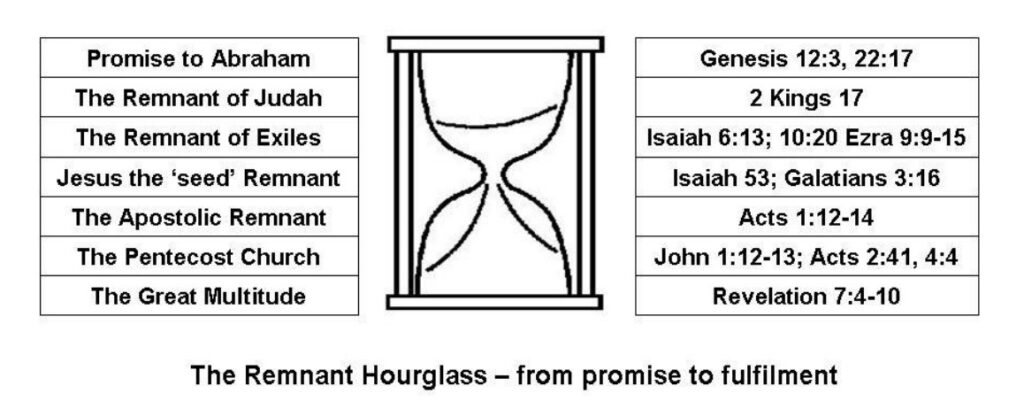
When the Lord Jesus Christ died on the cross, how large was the remnant of Israel?
God had promised Abraham that his descendants would be like the stars in the sky and the sand on the seashore (Genesis 22:17-18). Through the history of God’s people recorded in the Hebrew Scriptures we see the Lord blessing and cursing his people according to their faithfulness (Deuteronomy 11:26-28; 2 Kings 17). Sent into exile first into Assyria and then into Babylon, on each occasion only a remnant returned.
So when Christ died on the cross, how large was the remnant? Where were the remnant who had acclaimed Jesus the Messiah just a week earlier on Palm Sunday? Where were the disciples? Where was Peter and the other Apostles? Who were present at the cross when Jesus died? Mary Magdalene, Mary his mother and the Apostle John. Did they understand what was happening? Were they singing ‘When I survey the wondrous cross”? No, they were weeping. They did not understand.
When Jesus died on the cross he was the sole remnant, the sole faithful remnant of Israel. This is crystal clear from Isaiah 53.
“Surely he took up our pain
and bore our suffering,
yet we considered him punished by God,
stricken by him, and afflicted.
5 But he was pierced for our transgressions,
he was crushed for our iniquities;
the punishment that brought us peace was on him,
and by his wounds we are healed.
6 We all, like sheep, have gone astray,
each of us has turned to our own way;
and the Lord has laid on him
the iniquity of us all.” (Isaiah 53:4-6)
Read verse 6 again. “We all, like sheep, have gone astray, each of us has turned to our own way and the Lord has laid on him the iniquity of us all.”
When Jesus hung on the cross he was Israel. The remnant was reduced to one man, who died and three days later was raised to new life. In the resurrection narratives we read how Jesus forgives, restores and recommissions his remnant. First, of his apostles (John 20-21), and then after his ascension and bestowing of the Holy Spirit, on the Day of Pentecost, three thousand people of many nationalities were added (Acts 2:41). By Acts 4:4, the remnant had grown to more than five thousand men.

The promises God made to Abraham have and are being fulfilled in and through the Church of Jesus Christ. The Book of Revelation provides a vision of there ultimate fulfilment.
“After this I looked, and there before me was a great multitude that no one could count, from every nation, tribe, people and language, standing before the throne and before the Lamb. They were wearing white robes and were holding palm branches in their hands. And they cried out in a loud voice:
“Salvation belongs to our God,
who sits on the throne,
and to the Lamb.” (Revelation 7:9-10)
Was the coming of Jesus the fulfilment or the postponement of the promises God made to Abraham? The Scriptures are clear:
Jesus answered, “I am the way and the truth and the life. No one comes to the Father except through me.” (John 14:6)
“Salvation is found in no one else, for there is no other name under heaven given to mankind by which we must be saved.” (Acts 4:12)
The remnant of God’s chosen people are saved by grace through faith and faith alone in the Lord Jesus Christ, not race, not law, not works, but grace through faith.
